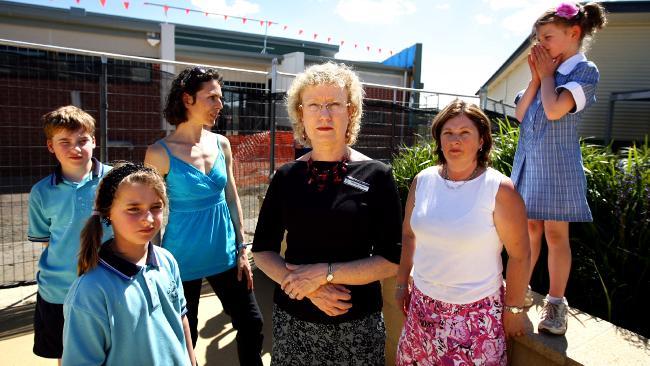BER stimulus boost 'short-lived'
VICTORIAN Treasurer John Lenders has admitted that the need for government stimulus had disappeared by the early stages of the $16.2bn BER program.

VICTORIAN Treasurer John Lenders has admitted that the need for government stimulus had disappeared by the early stages of the $16.2bn BER program.
As he released the Victorian Treasury's pre-election budget update yesterday, Mr Lenders said the federal government funds "originally designed for stimulus" were being used to "accelerate" the state's own 10-year school rebuilding program.
The funds would be rolled out until the end of 2011 - almost three years after the BER was announced - to ensure better value for money given the buoyant construction market.
Mr Lenders' comments came as Wayne Swan yesterday declared the BER "99 per cent committed, or completed" and said the government's stimulus spending was "basically tailing out of the system". But only one in five projects had been completed in Victoria as of last month and the state Auditor-General revealed just weeks ago that the Brumby government had pumped only 40 per cent of its $2.5 billion BER funding into the state's economy.
Victoria's concession that federal stimulus funds are now speeding up its school rebuilding program came as the federal Treasury warned Mr Swan that the national economy was reaching full capacity. The mid-year economic update, released yesterday, sounded alarm bells on stronger wages growth and rising inflation over the next two years because of strong domestic demand.
The Australian economy is now growing more rapidly than forecast before the August federal election and, despite revenue shortfalls, the Gillard government is on track to achieve a return to surplus of $3.1bn by 2012-13.
Despite the threat of capacity constraints, the federal Treasurer defended the pace of stimulus withdrawal and declared the controversial BER spending was "99 per cent committed, or completed". His office later confirmed that 99.7 per cent of national BER projects had started.
According to the first report of the government's BER taskforce, released in August, all 10,551 projects under the program should have started by the end of last month. The report, by former investment banker Brad Orgill, found that only $6.7bn of BER funds had been spent by May this year, with the balance to flow through the economy until the end of next year.
Mr Swan said the government's fiscal settings were "entirely appropriate for our circumstances". He said the government was applying its 2 per cent real spending growth rule as it sought to bring the budget back into surplus by 2012-13 and that the stimulus withdrawal would cut 1 percentage point from GDP.
As Victoria heads to its November 27 state election, Mr Lenders said the Brumby government had completed the first phase of the BER program on time because it generated jobs and stimulated the economy. Under the BER program, announced in February last year, phase one projects had to be commenced by June that year.
"The second phase went through roughly on time but we started slowing it down because we were getting value for money rather than job stimulus," Mr Lenders said. He said his government had sought and received permission from the federal government to delay the funding for "the third phase" of the BER program because of the state's strong economy and to achieve greater value for money.
"We will proceed with that (the delayed third stage) and gladly use the commonwealth money which was originally designed for stimulus to continue the schools we have contracted to build," he said.
"From our perspective, we made a commitment (in the 2006 state election campaign) to rebuild and modernise all 1500 government schools over 10 years and the commonwealth's money has allowed us to accelerate that program. We are delighted to continue doing it at a more measured nature . . . because the urgency of the global financial crisis has eased."
Mr Lenders' comments are likely to infuriate principals and school communities who have been complaining about the delays in their BER projects. They are also deeply unhappy about being cut out of the design and construction process and being forced to take on cookie-cutter designs in the name of speed to stimulate the economy.
Mr Lenders defended the delay to communities, saying: "We will roll out as fast as we prudently can."
The government has also stated that almost 100 per cent of the contracts for BER projects have been signed.
Mr Lenders said former prime minister Kevin Rudd had told all premiers last year that the BER would be a partnership to stimulate the economy and build school infrastructure.
"(They said) we will give you the money to bring forward school projects provided you deliver it quickly," he said. "As Victoria was less affected by the global financial crisis than other states . . . we put it to the commonwealth 'we can spend your stimulus money but we think we should spend it at a more measured pace to get better value for money because we are not Queensland and we are not NSW', and the commonwealth agreed to that."
Mr Lenders said most parents would agree it is "long overdue that governments are investing in their schools".
Additional reporting: David Uren




